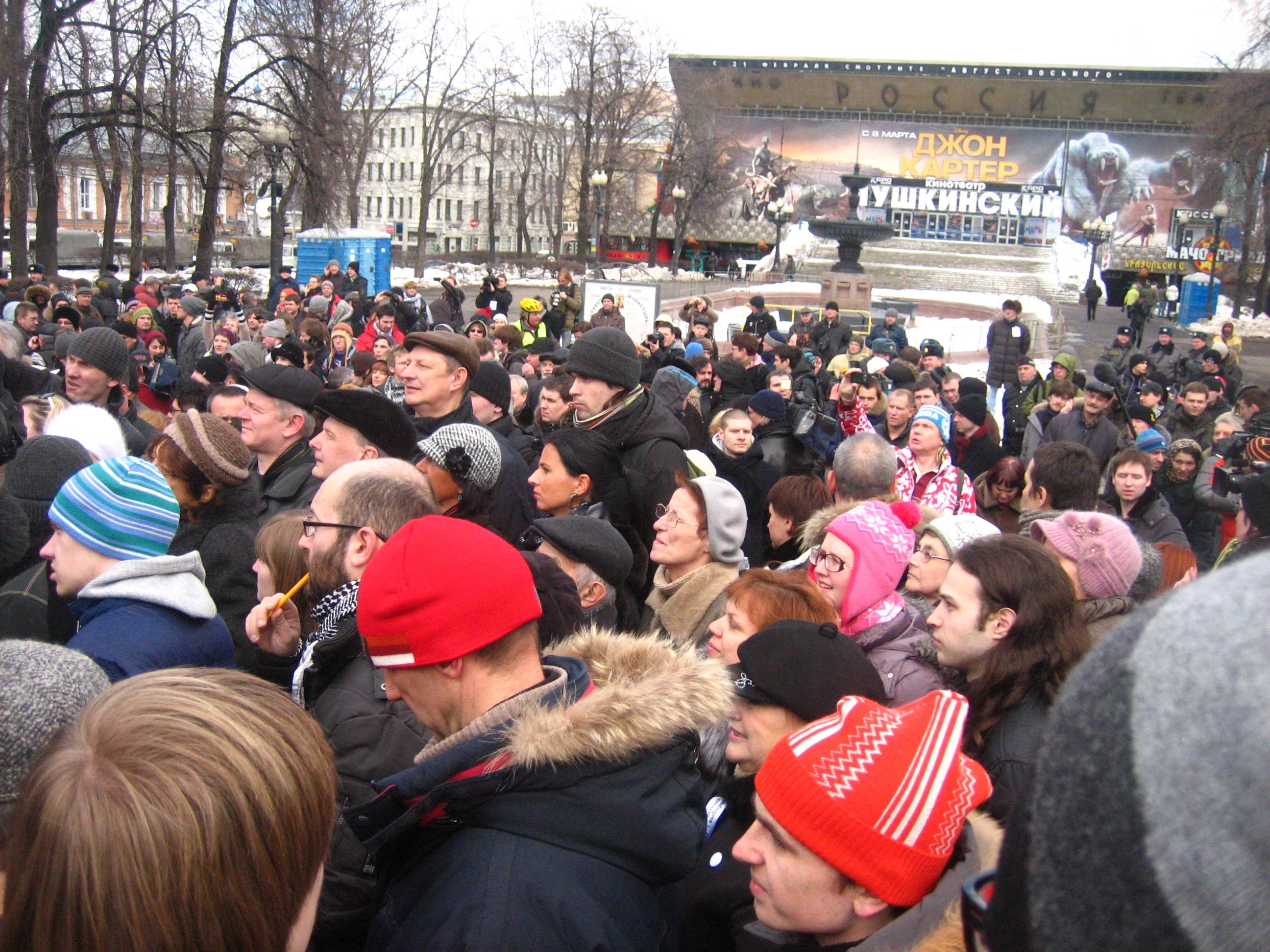One of the most popular methods that Russian authorities use to discredit any anti-government protest is to paint its participants as subversive, paid-off agents, somehow under the spell or even direct employ of unnamed foreign forces intent on Russia’s decline. In the run-up to the country’s presidential election, Vladimir Putin hinted at such an idea, declaring “We will not allow someone to impose their will on us, because we have our own will!” He went on to thunder: “It is in our genes, in our genetic code!” In other words, those in the streets protesting his rule were not taking part in the normal democratic process, but rather trying to undermine the state itself.
That rhetoric reached its perhaps logical climax on Thursday night, when NTV—a Russian broadcaster once known for its fierce, muckraking independence but was brought under Kremlin control in the early 2000s—aired a documentary that it had been hyping on air for days. The final product, a 36-minute film called “Anatomy of a Protest,” was marked by an ominous, paranoid tone, and a series of what the show’s narrator called “exclusive” footage. It purported to show participants in opposition protests in Moscow being paid in cash and, strangely, cookies; the film also suggested that officials from the U.S. embassy were involved in organizing the demonstrations, though when the filmmakers do corner a supposed U.S. agent on camera, he inexplicably is speaking German.
No matter: the point of the program was not to put forward any new particular facts or even to convince those Russians who are still undecided about the true motives of the protests of recent months. Instead, the real message of the film was to rile up the not insignificant portion of the Russian population that, already fed a steady diet of state propaganda, fears a so-called “Orange Revolution” and, beyond that, to demonstrate to anyone who had any doubts that even in the wake of an unprecedented protests against Putin’s rule, the state’s slick, well-funded propaganda machine is still thriving and can continue to churn out whatever material it likes. In this way, “Anatomy of a Protest” was something of a middle-finger aimed straight at those educated, well-travelled, middle-class Russians who formed the heart of the anti-Putin demonstrations of recent months—you may think things have changed, but we can still manipulate reality as we please and there isn’t anything you can do about it.
The film had the immediate effect of creating an anti-NTV backlash online. Within hours, nearly every piece of content—however innocuous or non-political—the station posted was inundated with comment after comment of “NTV lies.” (For a while last week, the hashtag “#НТВлжет” was the top trending topic on Russian-language Twitter.) The NTV website was unavailable for much of Friday, crashing either from the amount of visitors or possible denial-of-service attacks. And then, on Sunday, nearly 1,000 people gathered outside the station’s headquarters in Moscow for a protest. They shouted “Shame on NTV” and laid flowers on the steps of the station’s offices in a mock funeral for “truthful television.” It was an unsanctioned demonstration—meaning the organizers had no prior approval from city authorities—and before long the riot police moved in to break up the crowd. Around 50 people were arrested. Many cultural figures and independent journalists announced a boycott of the channel, declaring that they would refuse any future cooperation or interviews with the station—including even Valery Fadeyev, the editor of Expert magazine, who appeared in “Anatomy of a Protest” and then claimed that he had been duped into giving an interview by filmmakers and that his statements were then taken out of context.
What’s most remarkable about the controversy over “Anatomy of a Protest” is that the country’s developed middle-class seems to care about NTV, at all. For some time now, state-run television in Russia reflected the overall splintering of society: those in the country’s large cities, with professional careers and frequent interaction (either through travel, work, or on the Internet) with the West had largely turned away from stations like NTV and First Channel, instead choosing to get their news online. As this group saw it, NTV was for the elderly and those in the provinces; it wasn’t even worth paying attention to state-run television, not even to get angry at. In a way, the fallout from “Anatomy of a Protest” is similar to that which followed Russia’s parliamentary voting in December: if the scale of the fabrication is sufficiently over the top and offensive, then the country’s professional class can begin to care about things it was previously happy to ignore, whether elections or television.
